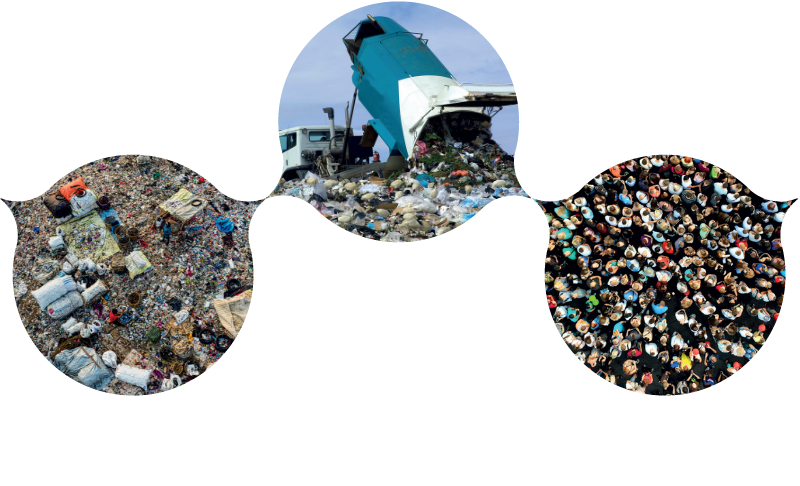

UBQ uses unsorted household waste as feedstock, including waste that is otherwise nearly impossible to recycle. This includes food waste that is not composted and mixed plastics that are too contaminated to recycle. If it weren't converted into UBQ™, all of this waste would be thrown in a landfill or incinerated.
LEARN MOREBy diverting waste from landfills or incineration, UBQ prevents GHGs from being released to the atmosphere, helping mitigate climate change. Organic materials that decompose in landfill are the third largest human source of methane, a greenhouse gas more than 80 times more potent than carbon dioxide. As a substitute to oil-based plastic, UBQ™ prevents methane related to drilling for oil and the carbon dioxide released when oil is turned into plastic or incinerated.
LEARN MOREUBQ™ replaces plastics made from petroleum, keeping fossil fuels in the ground where they belong. By using previously discarded materials as its sole feedstock, UBQ is supporting a circular economy and preserving finite natural resources for future generations.
LEARN MOREProducing UBQ™ is a low energy conversion process, using only a fraction of the energy required to produce conventional plastics. See the significant difference illustrated below:

Annual waste diversion capacity of UBQ Netherlands
